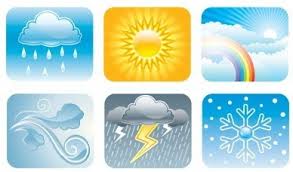Climate is one of the most important nature factors that has an effect on human health, and appearance and geography of diseases.

Usually, climate is defined as
There are some common regularities which describe the effect of meteorological factors on the sickness rate of a population. Firstly, considerable weather changes have the greatest effect on the human health. Cyclones are unfavourable for an organism, and anticyclones are mainly profitable (except cases of considerable warming and air pollution). Calm fair weather or the weather with sunny periods after frontal passage is regarded as beneficial for health. Weather changes accompanied by warm or cold frontal passages are biologically unfavourable. Secondly, the forms of physiological reaction of a human, that declare itself in the rise or fall of blood pressure, are associated with contrary changes of atmospheric pressure. Finally, the weather is not a direct reason for some physiological reactions, it only assists them. It is well known now that for some patients the influence of the weather may show itself in feeling unwell, exacerbation of chronic diseases and even in the growth of the rate of mortality. It is established that people start reacting at weather changes one or two days before those changes. The action of the weather is signal, not direct; weather inconstancy plays the leading role.
Among all climatic factors, noncyclic sharp temperature drops are in the first position to influence human organism (first of all, cardiovascular system). Low temperatures keep the second place, and they have the most effect at the initial stages of organism’s adaptation. When it is cold, energy demands of an organism go up causing particular strain in systems maintaining temperature homeostasis. Combination of low temperatures with strong wind affects human